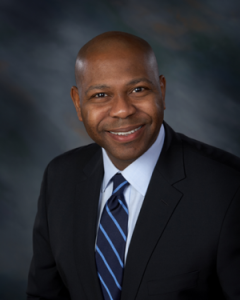Social affairs commentator Jason Riley, a member of the Wall Street Journal editorial board, visited Hanover on Wednesday, April 29 to address a crowd of students at the Tuck School of Business. Mr. Riley, whose recent book Stop Helping Us chronicled the negative effects of federal policy on poor black communities, was invited by Tuck’s Adam Smith Society to expand on his ideas.
Mr. Riley began his lecture by using the fifty years since the beginning of the War on Poverty as a measure to gauge black progress since the mid 20th century. He pointed out that quality-of-life improvements for the black community stalled at about the time President Johnson pivoted from civil rights to anti-poverty programs. Riley saw Johnson’s “Freedom is Not Enough” speech as the first prominent signal of the decades of government overreach that would follow.
“I think there are limits to what policy can do, even when our leaders are well-intentioned, and I think the past fifty years have shown that,” Riley declared, answering his own question about the effectiveness of programs like Temporary Assistance for Needy Families and extended disability payments. He summarized the old arguments about creating dependency, but mostly implied that anti-poverty policy had been ineffective rather than starkly negative.
To the surprise of many in the audience, Riley didn’t shy away from the “cultural” explanation for why most blacks have remained in relative deprivation. “Blacks must develop the same habits and culture that other disadvantaged groups needed to rise,” he said, and added “inasmuch as government programs limit that, they’re not helping” to tie the point back into his main argument.
Riley also criticized the effects of quotas, which are designed to “level the playing field” but which often benefit only the already well-off members of the black community. He cited the example of many states’ laws mandating that officials award a certain percentage of government contracts to black-owned businesses as the quintessential example, but added that the pattern also applied to higher education. In his observation, poor and working class blacks have been dramatically underserved by the affirmative action policies designed to boost their prospects. “After the University of California system banned racial preferences, the black graduation rate in the state actually went up,” he pointed out, suggesting that middle and low-income blacks who had been poorly prepared for college benefitted from attending less rigorous schools where they could build academic skills at their level rather than scrap to get by at the competitive UCs.
A highlight of the lecture came during the question-and-answer phase, when Riley challenged a student’s suggestion that a current wave of police aggression has contributed significantly to the black struggle. “A cop is approximately six times more likely to be shot by someone black than the opposite,” he said, attempting to throw cold water on the anger that has resulted from recent shooting incidents.
Energized by the altercation, Riley addressed incarceration, saying, “if you could snap your fingers and send home everyone in for a drug offense, black people would still make up 37% of the prison population.” Finally, he made a point to dispel the notion that sentencing had been used as a tool for racial aggression, recalling that disproportionate punishment for crack versus powder cocaine was originally championed by black leaders, such as New York Congressman Charlie Rangel who, wanted to vigorously prosecute the traffickers and users they saw tearing apart black communities.
Riley concluded the conversation by channeling older generations of civil rights leaders, who he believes had a firmer grasp of the actual issues hampering black life. He quoted Booker T. Washington’s claim that “it is far more important that [blacks] be prepared for the exercise of their rights,” than to focus on examples of injustice or try to artificially place blacks on an equal footing.


Be the first to comment on "WSJ’s Jason Riley Talks Black Poverty at Tuck"